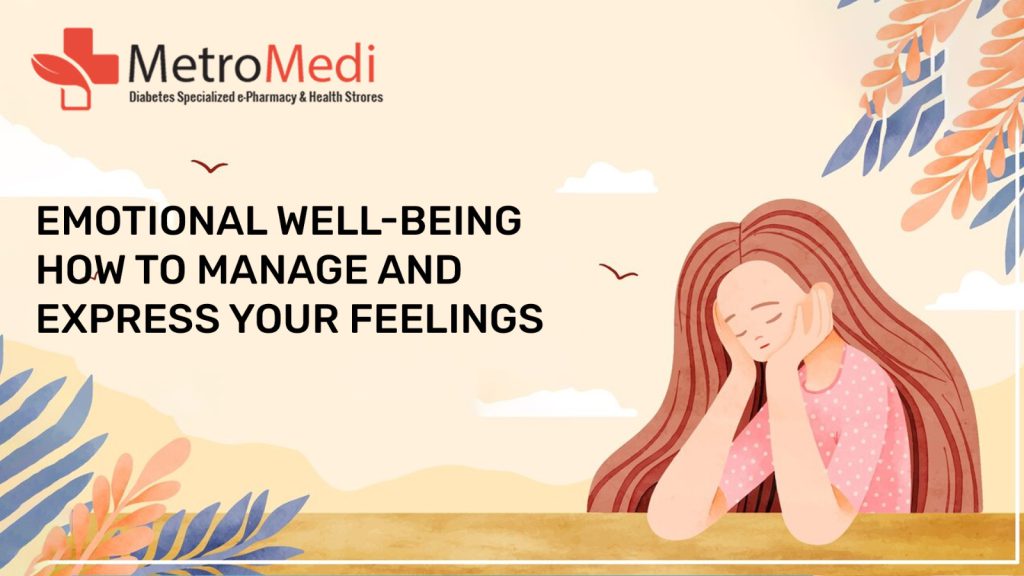
Emotions play a crucial role in shaping our daily experiences, interactions, and overall well-being. Managing and expressing emotions in a healthy way is key to maintaining emotional well-being and achieving balance in life. With the rise of online mental health counselling, it’s now easier than ever to seek help for managing your emotions, whether you’re dealing with stress, anxiety, or depression. This blog will explore practical strategies for emotional well-being while highlighting the benefits of online psychological counselling and online counselling services.
Why Emotional Well-being Matters
Emotional well-being is the ability to understand and manage your emotions effectively. When you’re emotionally healthy, you can:
- Handle stress and life challenges with resilience
- Build stronger, more fulfilling relationships
- Make decisions with clarity and confidence
- Experience greater joy and fulfilment in everyday life
Poor emotional management can lead to stress, anxiety, and even physical health issues. Seeking help through online depression counselling or online anxiety counselling can provide valuable support to enhance your emotional well-being and help you learn how to manage your emotions effectively.
1. Recognize and Identify Your Emotions
The first step in managing your emotions is recognizing them. Ask yourself, how do you feel? Are you sad, anxious, or stressed? Identifying your emotions helps you understand what you need to address. If emotions are overwhelming, seeking online mental health counselling can provide insight into what triggers certain feelings and how to manage them.
Mindfulness practices can help increase your awareness of your emotions. Staying present allows you to recognize emotional triggers and respond thoughtfully instead of reacting impulsively.
2. Accept Your Emotions Without Judgment
Remember that all emotions, whether positive or negative, are part of the human experience. Suppressing emotions or feeling guilty about negative emotions can worsen your mental state. By accepting your feelings without judgment, you give yourself permission to process them in a healthy way.
If you find it challenging to accept or deal with difficult emotions, online psychological counselling can provide a safe, judgment-free space to explore and understand your feelings.
3. Develop Healthy Coping Strategies
Once you recognize and accept your emotions, it’s important to develop healthy ways to cope with them. Here are some strategies:
- Deep Breathing: Use deep breathing techniques to calm your body when emotions become intense.
- Exercise: Physical activity can help release stress and improve your mood.
- Journaling: Writing down your thoughts can help you process emotions and gain perspective.
- Talking to a Counsellor: Online counselling services offer a convenient way to talk through your emotions with a professional who can provide guidance and support.
For those experiencing ongoing emotional challenges such as anxiety or depression, online depression counselling or online anxiety counselling can offer personalized coping strategies to better manage your feelings.
4. Express Your Feelings Constructively
Learning how to express your emotions constructively is crucial for emotional well-being. Here are some ways to communicate your emotions effectively:
- Use “I” Statements: When discussing your feelings, use “I” statements (e.g., “I feel frustrated when…”) to communicate without blaming others.
- Set Boundaries: If certain situations or people trigger negative emotions, it’s okay to set boundaries to protect your well-being.
- Creative Outlets: Sometimes, expressing emotions through art, music, or writing can help you process them more easily.
If you struggle with expressing your emotions, online psychological counselling can help you develop effective communication skills.
5. Practice Emotional Regulation
Emotional regulation is the ability to manage and respond to emotions in a healthy way. This doesn’t mean suppressing emotions but learning to stay composed and thoughtful, even in difficult situations. Here are some tips:
- Pause Before Reacting: When emotions are high, take a moment to pause before responding. This helps prevent emotional outbursts.
- Reframe Negative Thoughts: Challenge and reframe negative thoughts to see situations in a more positive or realistic light.
- Balance Your Life: Make time for relaxation and activities that bring you joy to create emotional balance.
If emotional regulation feels difficult, online mental health counselling can provide tools to help you manage intense emotions and reactions.
6. Seek Professional Support When Needed
Sometimes managing emotions on your own is overwhelming, especially if you’re dealing with chronic stress, anxiety, or depression. This is where online counselling services can make a difference. Whether it’s online depression counselling, online anxiety counselling, or online psychological counselling, speaking with a trained professional can provide guidance, support, and coping strategies tailored to your emotional needs.
Conclusion
Emotional well-being is about recognizing, accepting, and managing your emotions in a healthy and constructive way. With the convenience and accessibility of online mental health counselling and other online counselling services, it’s easier than ever to get the support you need to lead a more balanced, emotionally healthy life. By understanding your emotions, practicing healthy coping mechanisms, and seeking help when needed, you can enhance your emotional well-being and improve your overall quality of life.
